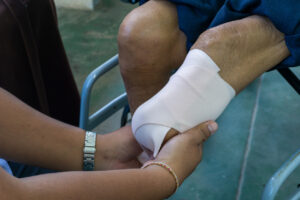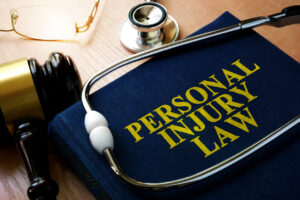
When someone is injured, it can dramatically change every aspect of their life. Beyond the medical costs, a serious injury can harm a person’s independence, mobility, mental health, and overall well-being. In personal injury cases, when a victim’s ability to enjoy their life has been compromised, it is known as an impact on their quality of life.
In cases where someone else’s negligence is the cause of harm, the person who is injured may be able to receive compensation for their diminished quality of life. Understanding how injuries can affect an individual’s daily life — and knowing the legal options available to them as a result — can help victims seek compensation.
Understanding Quality of Life in Personal Injury Cases

A lot of factors go into a person’s quality of life, including their ability to engage in activities they enjoy, continue maintaining close relationships, and experience personal fulfillment. When an injury makes these activities more difficult or sometimes even impossible, it can have devastating consequences.
Diminished quality of life can occur because of physical limitations, emotional trauma, or both. For example, an individual who was often active and outdoors may struggle with a lack of mobility after an accident. They may experience chronic pain, anxiety, depression, or other health concerns that diminish their ability to continue life as they once knew it.
Common Causes of Diminished Quality of Life
Many kinds of accidents and injuries can reduce a person’s ability to live independently or participate in activities they once did. Some of the most common causes include:
- Car Accidents: A severe collision can cause spinal cord injuries, traumatic brain injuries (TBIs), and other life-altering problems
- Slip and Fall Accidents: Falls can lead to injuries like fractures, head trauma, and chronic pain, which hinder mobility and daily living
- Medical Malpractice: Errors made during medical procedures can result in long-term disabilities and complications that worsen health
- Workplace Injuries: On-the-job accidents can cause permanent impairments and prevent individuals from returning to work
- Defective Products: When consumer products malfunction, the result can be severe burns, amputations, or other kinds of catastrophic injuries
Any of these accidents can reduce an individual’s ability to enjoy their life and perform daily tasks they were once able to. Recognizing the long-term effects of an injury is important, especially when considering pursuing compensation.
How Injuries Affect Quality of Life
Not every injury will heal completely. Some may lead to a lifetime of limitations and potential pain that change the way a person interacts with the world.
Physical Limitations and Mobility Issues
Some severe injuries can limit movement, preventing a person from being able to maintain a job and potentially requiring ongoing medical care. Common physical impairments can include:
- Chronic Pain: Individuals with persistent pain can struggle with daily activities and have a reduced overall enjoyment of life
- Spinal Cord Injuries: Paralysis or limited mobility can prevent a person from engaging in work or personal activities
- Amputations: A lost limb can take away an individual’s ability to complete basic tasks and live a life of independence
- Disfigurement or Scarring: Visible injuries can lead to emotional stress and self-esteem issues
Having to face these limitations can change everything in a person’s life, from their employment opportunities to social situations, making their day-to-day life infinitely more challenging.
Mental and Emotional Distress
Not only can an injury harm an individual in a physical way, but many victims experience severe psychological distress when adjusting to their new reality. Some of the most common emotional impacts can include:
- Depression and Anxiety: Issues with mental health can stem from loss of independence, financial concerns, and ongoing chronic pain
- Post-Traumatic Stress Disorder (PTSD): Victims involved in serious accidents can develop PTSD, making it more difficult to resume normal activities
- Loss of Enjoyment of Life: Being unable to engage in hobbies, travel, or social events can diminish a person’s overall well-being
Emotional and psychological scars from a severe injury can be just as devastating as physical issues. Compensation for diminished quality of life will recognize the full spectrum of a victim’s pain and suffering.
How Quality of Life Damages Are Calculated
Unlike medical expenses and lost wages, quality of life falls in the category of non-economic damages. These do not have a set dollar value like economic damages. To determine appropriate compensation, courts and insurance companies will consider a variety of factors:
- Severity of the injury
- Age of the victim
- Ability to work
- Effects on daily life
- Long-term medical needs
Oklahoma does not have a fixed formula for calculating non-economic damages, so a combination of methods may be used to determine compensation.
Seeking Legal Help for Quality of Life Compensation
If you or a loved one suffered an injury that diminished your quality of life, you deserve to have skilled legal representation to get the compensation you need. The team at Laird Hammons Laird Personal Injury Lawyers understands the challenges victims face. We are here to help you rebuild your life. Contact us today at (405) 703-4567 for a free consultation and to learn more about your options.
